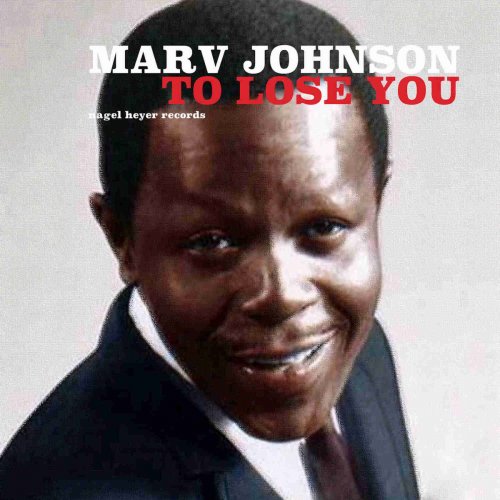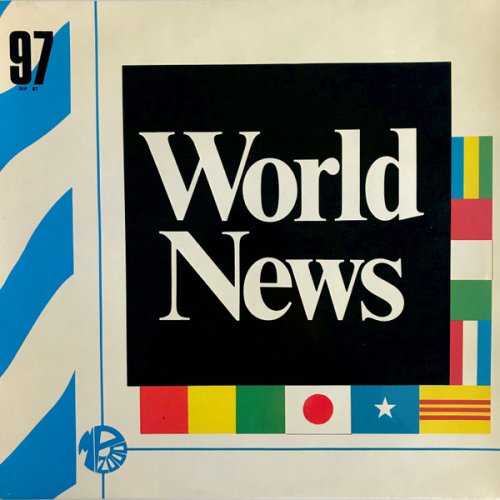Marv Johnson - To Lose You (2018)

Artist: Marv Johnson
Title: To Lose You
Year Of Release: 2018
Label: nagel heyer records
Genre: R&B, Soul
Quality: FLAC (tracks) / MP3
Total Time: 1:16:33
Total Size: 465 / 177 MB
WebSite: Album Preview
Tracklist:Title: To Lose You
Year Of Release: 2018
Label: nagel heyer records
Genre: R&B, Soul
Quality: FLAC (tracks) / MP3
Total Time: 1:16:33
Total Size: 465 / 177 MB
WebSite: Album Preview
01. When I Fall in Love
02. S Wonderful
03. Summertime
04. You Got What It Takes
05. Come to Me
06. Just Let Me Love You
07. Swing Low, Sweet Chariot
08. I Can't Get Started
09. He Gave Me You
10. Almost Like Being in Love
11. Love Is Here to Stay
12. You Better Mind
13. Happy Days
14. Don't Leave Me
15. Ride the Chariot
16. I'm Coming Home
17. Easier Said Than Done
18. September in the Rain
19. I Need You
20. Baby, Baby
21. Let Every Living Creature Praise the Lord
22. When You've Lost Your Love
23. Merry-Go-Round
24. I Love the Way You Love
25. He's Got the Whole World in His Hands
26. (You've Got To) Move Two Mountains
27. This Heart of Mine
28. River of Tears
29. Ain't Gonna Be That Way
Best remembered for a handful of hits including the Top Ten smashes "You Got What It Takes" and "I Love the Way You Love," Marv Johnson was also a seminal figure in the early history of Motown Records. Marvin Earl Johnson was born in Detroit, Michigan in 1938, and was raised in a musical environment that mixed the gospel music of the Baptist church with the jump-jazz of Louis Jordan & His Tympany 5. By the time he was in high school he had joined a local singing group, playing carnivals and fairs. In 1958, he cut his first sides, "My Baby-O" and "Once Upon a Time;" the single failed to sell, but the recording session resulted in a meeting with songwriter and would-be record producer Berry Gordy.
After Johnson played his original song "Come to Me" for Gordy and his future wife Raynoma, the couple chose Johnson as the first artist for their fledgling record label, Tamla. Because the new label didn't have distribution outside of Detroit, "Come to Me" (credited to Gordy and Johnson) was released nationally by United Artists, and rose to number six on the R&B charts and number 30 on the pop charts. Gordy soon lost direct control of his first discovery after United Artists signed Johnson directly, but continued as the singer's manager. Johnson also toured with Motown acts such as the Miracles in addition to appearing on Alan Freed's rock & roll revues and media venues such as American Bandstand, and joined early package tours and stage revues where he shared bills with his idols Sam Cooke and Jackie Wilson.
Johnson's second single fared poorly, but his third, 1959's "You've Got What It Takes," exploded onto the charts, becoming a Top Ten hit and earning a gold record. The 1960 follow-up "I Love the Way You Love" also landed in the Top Ten; among his subsequent singles, "You've Got to Move Two Mountains" was a more pop-flavored effort that reached the Top 20, while "Happy Days" got to number seven on the R&B charts late in 1960. "Merry-Go-Round," issued in early 1961, was Johnson's last chart success.
In 1965, with the British Invasion in full swing, Johnson's contract was dropped by United Artists; he finally came "home" to Motown, joining the Gordy label, but never enjoyed another American hit, although he earned a British gold record with "I'll Pick a Rose for My Rose" for Tamla in 1968. He later worked in a front-office job for Motown, and also wrote songs for Tyrone Davis and Johnny Taylor. Johnson's recording career ended in the late '60s, but he never stopped performing, and remained active on-stage into the early '90s. Johnson died from a stroke at a concert in Columbia, South Carolina on May 16, 1993. ~ Bruce Eder
After Johnson played his original song "Come to Me" for Gordy and his future wife Raynoma, the couple chose Johnson as the first artist for their fledgling record label, Tamla. Because the new label didn't have distribution outside of Detroit, "Come to Me" (credited to Gordy and Johnson) was released nationally by United Artists, and rose to number six on the R&B charts and number 30 on the pop charts. Gordy soon lost direct control of his first discovery after United Artists signed Johnson directly, but continued as the singer's manager. Johnson also toured with Motown acts such as the Miracles in addition to appearing on Alan Freed's rock & roll revues and media venues such as American Bandstand, and joined early package tours and stage revues where he shared bills with his idols Sam Cooke and Jackie Wilson.
Johnson's second single fared poorly, but his third, 1959's "You've Got What It Takes," exploded onto the charts, becoming a Top Ten hit and earning a gold record. The 1960 follow-up "I Love the Way You Love" also landed in the Top Ten; among his subsequent singles, "You've Got to Move Two Mountains" was a more pop-flavored effort that reached the Top 20, while "Happy Days" got to number seven on the R&B charts late in 1960. "Merry-Go-Round," issued in early 1961, was Johnson's last chart success.
In 1965, with the British Invasion in full swing, Johnson's contract was dropped by United Artists; he finally came "home" to Motown, joining the Gordy label, but never enjoyed another American hit, although he earned a British gold record with "I'll Pick a Rose for My Rose" for Tamla in 1968. He later worked in a front-office job for Motown, and also wrote songs for Tyrone Davis and Johnny Taylor. Johnson's recording career ended in the late '60s, but he never stopped performing, and remained active on-stage into the early '90s. Johnson died from a stroke at a concert in Columbia, South Carolina on May 16, 1993. ~ Bruce Eder
![David Buckley - The Lincoln Lawyer (Soundtrack from the Netflix Series) (2026) [Hi-Res] David Buckley - The Lincoln Lawyer (Soundtrack from the Netflix Series) (2026) [Hi-Res]](https://img.israbox.com/img/2026-02/04/vzp86w0v1k1yvpz6k1s70okfi.jpg)







